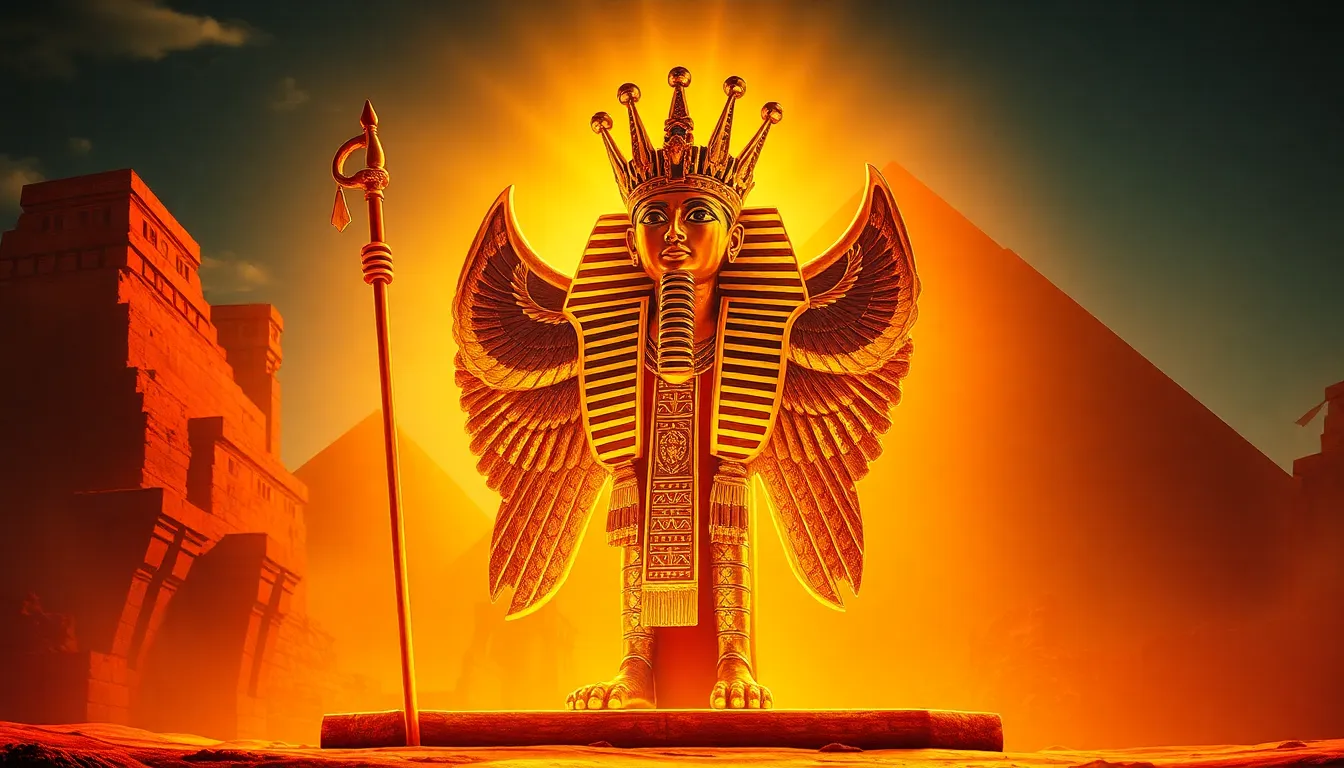The Importance of Divine Kingship in Egyptian Legacy
I. Introduction
Divine kingship, a fundamental concept in ancient Egyptian society, refers to the belief that the pharaoh was not only a political ruler but also a divine figure, chosen by the gods to govern the land. This idea held immense significance throughout Egypt’s history, shaping its culture, religion, and social structure. In this article, we will explore the historical context, role, and impact of divine kingship in ancient Egypt, ultimately highlighting its lasting legacy.
II. Historical Context of Divine Kingship in Egypt
The emergence of divine kingship can be traced back to the Early Dynastic Period (c. 3100-2686 BCE), when the foundations of the pharaonic state were established. This period marked the unification of Upper and Lower Egypt, and the concept of a divine ruler became central to the identity of the Egyptian state.
- Key Pharaohs: Notable pharaohs such as Narmer (also known as Menes), who is credited with unifying Egypt, and Djoser, who commissioned the Step Pyramid, played pivotal roles in solidifying the idea of divine kingship.
- Evolution: Over the centuries, this concept evolved through various dynasties, adapting to the changing political and social landscapes while remaining a cornerstone of Egyptian identity.
III. The Role of the Pharaoh as a Divine Figure
The pharaoh embodied a dual identity as both a political leader and a divine intermediary between the gods and the people. This duality was central to their authority and governance.
- Political Leader: As the head of state, the pharaoh made laws, waged wars, and managed resources.
- Divine Intermediary: The pharaoh was seen as a god on earth, responsible for maintaining Ma’at, the principle of truth, balance, and cosmic order.
Rituals and ceremonies reinforced the divine status of the pharaoh, including the Sed festival, which celebrated the pharaoh’s continued strength and divine favor.
IV. Divine Kingship and Egyptian Religion
The connection between gods and pharaohs was deeply woven into the fabric of Egyptian religion.
- Myths and Legends: Numerous myths, such as the Osiris myth, underscore the belief in the pharaoh’s divine right to rule and their connection to the gods.
- Temples and Monuments: Temples dedicated to gods often included altars for the pharaoh, reinforcing the idea of their divine nature and their role in the spiritual realm.
V. Societal Impact of Divine Kingship
The concept of divine kingship had profound implications for Egyptian society.
- Unification: Divine kingship facilitated the unification of Egypt under a single ruler, fostering national identity.
- Governance: The authority of the pharaoh influenced laws and order, as their divine status was believed to legitimize their decrees.
- Social Hierarchy: Divine kingship played a crucial role in shaping the social structure, with the pharaoh at the apex, followed by nobles, priests, and commoners.
VI. Art and Architecture Reflecting Divine Kingship
Art and architecture served as powerful expressions of divine kingship, symbolizing the pharaoh’s authority and divine status.
- Symbolic Representation: Pharaohs were often depicted in art as larger-than-life figures, adorned with regalia that emphasized their divine nature.
- Monumental Architecture: The construction of pyramids and temples, such as the Great Pyramid of Giza and the Temple of Karnak, illustrated the pharaoh’s divine role and the resources available to them.
- Iconography: Artistic depictions often included symbols such as the ankh (symbol of life) and the crook and flail (symbols of authority), reinforcing the pharaoh’s connection to the divine.
VII. The Decline of Divine Kingship
Despite its significance, divine kingship began to decline due to various factors.
- External Pressures: Invasions and foreign rule, such as the Hyksos and later the Assyrians, challenged the traditional notions of divine kingship.
- Internal Struggles: Political fragmentation and power struggles among nobles and priests eroded the pharaoh’s authority.
- Lasting Legacy: Although divine kingship waned, its impact persisted in later Egyptian history, influencing subsequent rulers and cultural practices.
VIII. Conclusion
In summary, divine kingship was a crucial element of ancient Egyptian civilization, embodying the relationship between the pharaoh, the gods, and the people. Its significance is evident in the historical context, the role of the pharaoh, the societal impact, and the artistic expression of divine authority. The enduring legacy of divine kingship continues to shape our understanding of ancient civilizations and their complex belief systems.
Through the lens of divine kingship, we gain valuable insights into the cultural and spiritual life of ancient Egypt, illustrating the profound impact that this belief had on their identity and governance.




